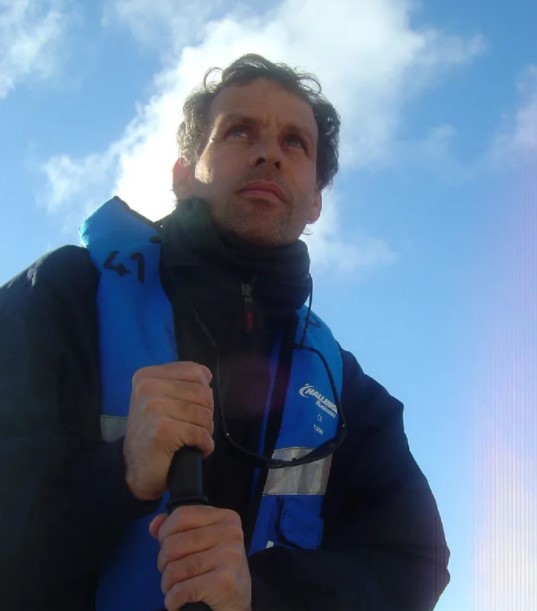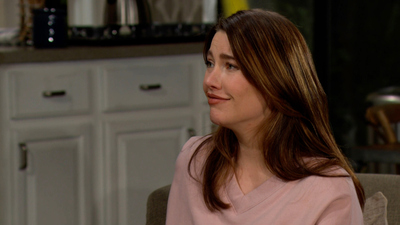What to Watch Verdict
Put your hero on foot and The Unlikely Pilgrimage of Harold Fry proves British cinema can do road movies after all.
Pros
- +
Jim Broadbent is in fine form
- +
Shows off the English countryside
Cons
- -
The film’s satirical touches don’t always work
- -
Sometimes strays toward sentimentality
Think of the typical protagonist of a road movie and you will probably imagine someone young, rebellious and behind the wheel of a car, doubtlessly crossing the wide-open spaces of the United States. That description certainly doesn’t fit Jim Broadbent in The Unlikely Pilgrimage of Harold Fry, an entertaining British comedy-drama based on actress turned author Rachel Joyce’s bestselling, Booker-shortlisted debut novel of the same name from 2012.
Far from putting the pedal to the metal, Broadbent’s unassuming elderly gent goes to post a letter and ends up walking 600-odd miles across England from South Devon to Berwick-upon-Tweed. Yet, although he is on foot rather than in a car, his journey is no less epic, in its own way, than the trips taken by the road-movie genre’s customary leads. And, like them, he too is on a path of self-discovery and change.
When we first encounter him, Broadbent’s eponymous Harold Fry is very much a man stuck in a rut. He is retired from his managerial job at a brewery and it has been many years since he was loved by his wife, Maureen (a tightly wound, purse-lipped Penelope Wilton). As depicted here by Joyce (doubling up as the film’s screenwriter) and director Hettie Macdonald (perhaps best known for co-helming the TV adaptation of Normal People), his suburban existence couldn’t be duller or emptier.
Then he receives a letter from Queenie, a former work colleague and friend who is dying from cancer in a hospice on the other side of the country. Uncertain how best to respond, he nonetheless sets out to post his reply. However, when a blue-haired, copiously tattooed young woman (Nina Singh) in a nearby garage relates the tale of her stricken aunt’s miraculous recovery, he decides to make Northumberland his destination, not the post box. "I'm going to save you," he scribbles to Queenie. "I will keep walking, and you must keep living."
Harold couldn’t be less prepared for his impromptu journey — he is wearing yachting shoes and has no map or compass — but this doesn’t deter him in the least. "You will not die," he repeats, his mantra as he puts one blistered foot after the other. He has a touching encounter with a kindly Slovakian doctor (Monika Gossmann), and, less convincingly, is joined for a while by a motley assortment of fellow pilgrims, and ends up a media celebrity.
The filmmakers stumble a little when they attempt to satirize the temporary companions Harold picks up en route, and there are also times when they threaten to veer off into sentimentality, but the story has a darker edge that stops things becoming overly twee. Harold’s dogged resilience is the dramatic engine that drives the film, but Broadbent also conveys the less attractive sides of Harold’s character and history, while Wilton introduces notes of anger, bitterness and frustration to balance the film’s overall mood of uplift, with timely flashbacks slowly revealing that the couple’s highly strung son has been the cause of their estrangement.
The Unlikely Pilgrimage of Harold Fry shows that a film about someone walking doesn’t have to be pedestrian. Along the way, its makers also disprove the notion that you can’t make a road movie on what DH Lawrence called "an island no bigger than a back garden". British cinema may not be able to match the widescreen vistas offered by American movies, but Macdonald and cinematographer Kate McCullough shows that the English countryside can be no less striking. Now and then on Harold’s journey, there are hints of something almost mythic and mystical about the landscape. As Harold says to himself while gazing alone at a beautiful sun-dappled view, ‘Who knew?’
The Unlikely Pilgrimage of Harold Fry hits UK cinemas on April 28.
A film critic for over 25 years, Jason admits the job can occasionally be glamorous – sitting on a film festival jury in Portugal; hanging out with Baz Luhrmann at the Chateau Marmont; chatting with Sigourney Weaver about The Archers – but he mostly spends his time in darkened rooms watching films. He’s also written theatre and opera reviews, two guide books on Rome, and competed in a race for Yachting World, whose great wheeze it was to send a seasick film critic to write about his time on the ocean waves. But Jason is happiest on dry land with a classic screwball comedy or Hitchcock thriller.












